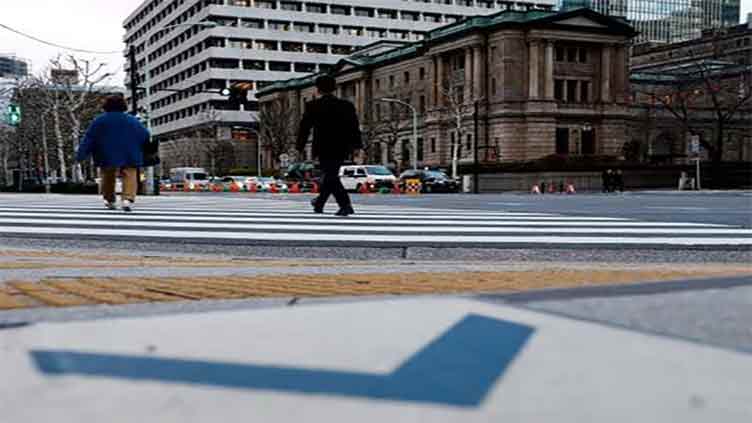Unfazed by recession, BOJ keeps April policy shift on table

Business
Unfazed by recession, BOJ keeps April policy shift on table
TOKYO (Reuters) -The Bank of Japan is on track to end negative interest rates in coming months despite the economy's fall into recession, say sources familiar with its thinking, though weak domestic demand means they may seek more clues on wages growth before acting.
Japan shocked analysts on Thursday when data showed gross domestic product unexpectedly contracting for two straight quarters, the technical definition of a recession, and losing its place as the world's third-largest economy to Germany.
While the GDP headlines were startling, the focus for BOJ policymakers is on whether the bumper wage hikes set for 2024 will be repeated next year, a condition the central bank believes is necessary for Japan to emerge from decades of tepid household consumption.
For that reason, this spring's annual wage negotiations that set pay levels for 2025 remain a more important economic indicator for the BOJ than the fourth-quarter GDP, which is backward looking.
At the same time, the consumer-sector weakness seen in the GDP figures means an end to negative rates is now more likely at the BOJ's April meeting rather than its March gathering, giving the bank more time to get a read on the health of the economy.
"It's true domestic demand lacks momentum. But GDP is only among many data points the BOJ looks at," said one source. "What's important is the economy's broader trend and the outlook," another source said, a view echoed by third source.
BOJ governor Kazuo Ueda, who took office last year, has been laying the groundwork to shift away from the radical monetary stimulus introduced by his predecessor Haruhiko Kuroda, which has been blamed for heavy financial market distortions.
On Friday, Ueda stuck to the script that tweaks to various monetary easing measures, including negative rates, were still options despite the GDP data.
DELAY NOT WITHOUT RISK
Intensifying labour shortages have prodded many firms to signal significant pay hikes, heightening hopes of broad-based wage gains that would give households purchasing power to weather steady price rises.
Last week, Deputy Governor Shinichi Uchida explained in depth the BOJ's plan for dismantling its complex policies, which included a pledge to avoid hiking borrowing costs rapidly upon ending negative rates.
The carefully telegraphed signals have led most market players to project an end to negative rates either at the BOJ's policy meeting on March 18-19 or April 25-26. A Reuters poll conducted after the release of GDP data showed all 10 economists predicting an end to negative rates by April.
Delaying an exit from negative rates could accelerate the yen's recent declines, hurting already soft consumption by pushing up import costs.
"Markets are already fully pricing in the chance of action either in March or April," a fourth source said. "If the BOJ forgoes action, that could be a huge shock to markets."


